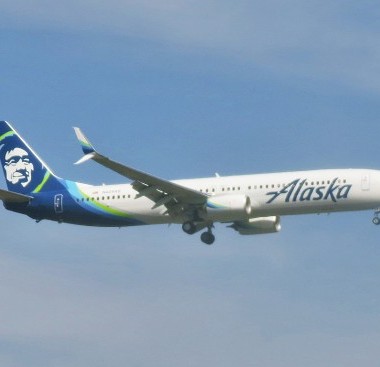Global Logistics Forum concludes first edition with 65 agreements
Oct 17, 2024Held under the patronage of the Custodian of the Two Holy Mosques, King Abdulaziz bin Saud, the inaugural Global Logistics Forum 2024, hosted by the Ministry of Transport and Logistics Services, took place in Riyadh from October 12-14. The forum witnessed 65 agreements and memoranda of understanding (MoUs) worth more than 16 billion SAR (equivalent to 4.3 billion USD).
Opened by H.E. Eng. Saleh bin Nasser Al-Jasser, Minister of Transport and Logistics Services (MOTLS), the Global Logistics Forum (GLF) featured participation from over 130 global transport and logistics leaders and experts and was attended by over 13,000 visitors, including over 15 ministers and 77 industry leaders from more than 30 countries.
H.E. Eng. Saleh Al-Jasser, the Minister of Transport and Logistic Services, said: “Hosting the first Global Logistics Forum at the heart of global trade - Saudi Arabia - has been an honor. The event has been crucial in addressing the evolving challenges of global supply chains.
“The theme ‘Reshaping the Global Logistics Map’, highlighted Saudi Arabia’s pivotal role in the global logistics sector and provided a platform for showcasing innovative solutions to elevate the industry.
Al-Jasser added, “GLF came at a a critical juncture. The region is facing renewed tensions and we are witnessing a defining moment. We look forward to the next iteration of the forum in two years’ time.”
MOTLS, in collaboration with the Ministry of Investment, announced a series of agreements and MoUs, including an MoU with FedEx to explore investment opportunities in the logistics and transport sector in Saudi; agreements with Saddel Group to establish cold storage facilities in Jeddah; and partnerships with Pacific International Lines and the Saudi Ports Authority (Mawani) to explore opportunities in integrated logistics services and multimodal transport. Additionally, an MoU was signed between the Transport General Authority and the Egyptian Ministry of Transport to enhance maritime connectivity between the two countries.
Furthermore, MOTLS announced MoUs with the National Unified Procurement Company for Medical Supplies to establish regional centers for medical supplies and with the Saudi Industrial Development Fund to collaborate on developing transport and logistics services to support industrial transformation.
Global industry leaders celebrated prominent agreements, including Agility Logistics' expansion of its warehouses in the Kingdom and an MoU with the Saudi Railway Company, plus a partnership between Saudi Airlines Cargo and the Second Airports Cluster to enhance air cargo services.
Scholarship and training initiatives were unveiled, with MOTLS announcing agreements as part of the ‘Wa'ed’ track, a component of the Custodian of the Two Holy Mosques Scholarship Program in aviation and logistics sectors, in collaboration with Saudi Group, Airports Holding Company, Helicopter Company, and Saudi Railway. The Saudi Logistics Academy announced a series of training initiatives in collaboration with NEOM, Qassim University, and Al-Salehia Logistics.
Discussions at the forum focused on the need for flexibility to mitigate sector instability, the importance of adopting modern technologies to advance services, the role of human capital in the future of logistics, and the significance of resilience in the shipping sector. Participants examined the impact of geopolitical conditions on supply chains, the role of railways in providing sustainable and eco-friendly transportation, global trends in increasing reliance on railways, and the capacity of air freight to address and respond to crises.
Participants emphasized the need for enhanced international cooperation to tackle supply chain challenges, ensuring uninterrupted maritime navigation and safe shipping across seas, skies, and land. Governments and the private sector were encouraged to increase investment in developing logistics infrastructure, including advanced railways, ports, airports, and roads, with a focus on projects connecting South Asia, the Middle East, and Europe.
Similar Stories
DHL Express report provides guidance for small and medium-sized enterprises (SMEs) on expanding to global markets
• SMEs can grow business and increase competitiveness by trading their products and services internationally • Access to finance, technology adoption and favorable trade policies can significantly boost SME's participation…
View Article
New report highlights alarming freight crime trend in Italy
View Article
MYCRANE expands offering with launch of global lifting equipment Marketplace
View Article
Kerry Logistics Network lauded for its sustainability and ESG credentials
View Article
Arvato signs agreement to acquire ATC Computer Transport & Logistics
View Article
Chapman Freeborn agrees partnership with Portuguese multimodal logistics specialist
View ArticleGet the most up-to-date trending news!
SubscribeIndustry updates and weekly newsletter direct to your inbox!





